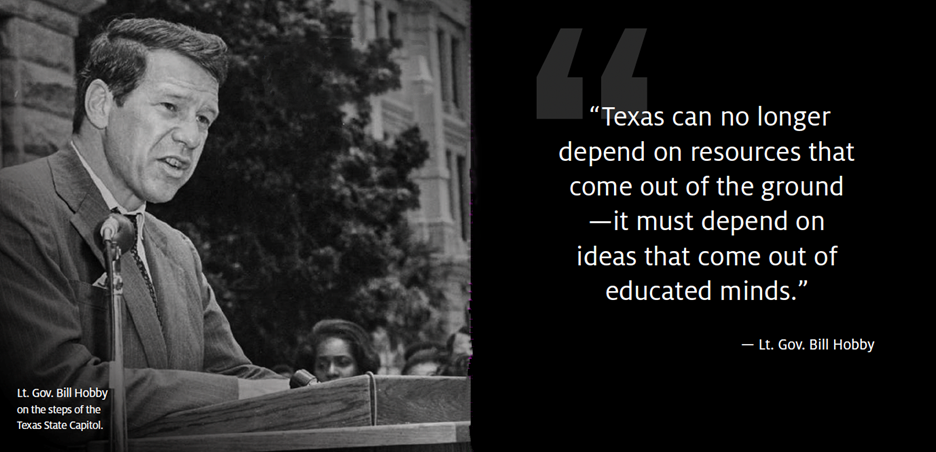About the Hobby School of Public Affairs
Who We Are
The Hobby School of Public Affairs at the University of Houston is a thriving resource for public affairs education, innovative research and civic engagement. Tomorrow's leaders are prepared to face complex and evolving challenges with innovative and evidence-based solutions through an interdisciplinary curriculum and real-world experiences. The Hobby School researches public policy issues, contributes to conversations on policy options and addresses concerns important to Texans.
Named in honor of former Texas Lt. Gov. Bill Hobby and his family, the school's mission aligns with their legacy of public service and approach to policy. The foundation emphasizes a multidisciplinary approach, rigorous quantitative analysis, ethics and leadership training and experiential learning.

What We Offer
The Hobby School offers various academic paths and public service opportunities, including bachelor’s degrees in public policy, a minor in public leadership, a Master of Public Administration, a Master of Public Policy, dual degrees and graduate certificates in public policy.
Mission-oriented students integrate classroom learning with internships in Houston, Austin and Washington, D.C. and programs focused on civic engagement and leadership development. Public service professionals can enhance their skills and careers with advanced training and instruction through the Certified Public Manager Program.
Centers
The Hobby School was established in 2016, building on the extensive educational and research programs of the Center for Public Policy, which was founded at the University of Houston in 1981. The centers at the Hobby School focus on policy-relevant and collaborative research and issues across a variety of disciplines. The Center for Public Policy focuses on the research and analysis of critical public policy problems using objective and rigorous methods. The Elizabeth D. Rockwell Center on Ethics and Leadership sponsors lectures, events, research, scholarship and fellowship opportunities and fosters cross-disciplinary dialogue about the ethical dimensions of policy issues and leadership challenges.